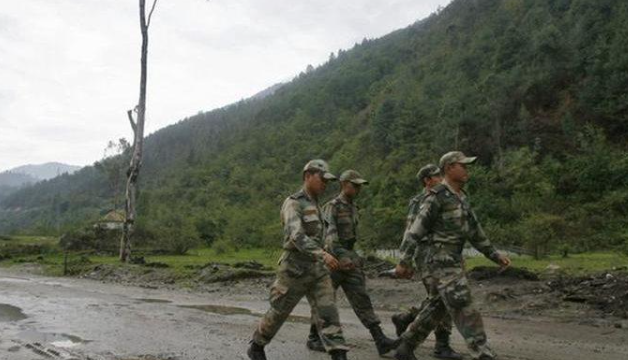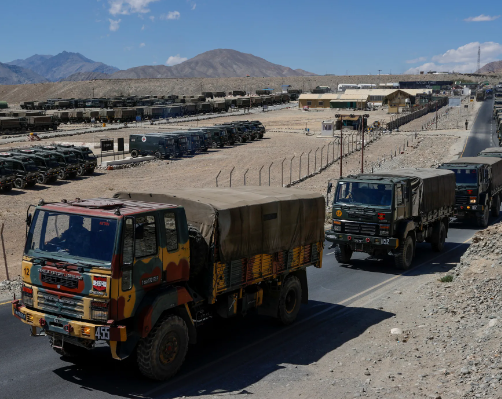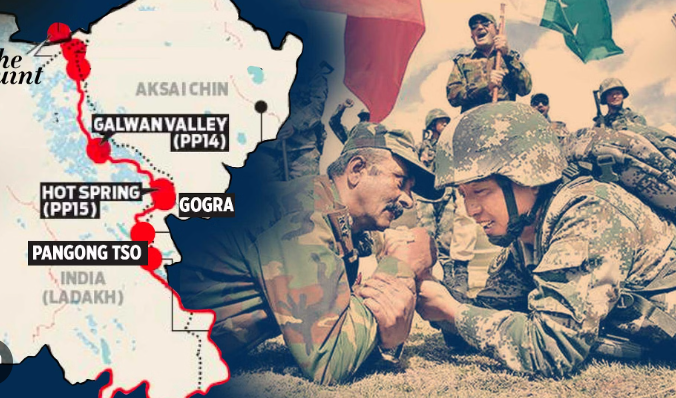
India-China Border Deployment Sparks Potential Armed Conflict, Warns US Intel Report
India-China Border Deployment Raises Specter of Conflict
The recent assessment by US intelligence agencies raises significant concerns about the potential for armed conflict between India and China due to the escalating tensions along their shared border. Both countries have deployed large numbers of troops, leading to sporadic encounters that could easily escalate into a full-blown conflict. This ongoing border dispute continues to strain relations between the two neighbors, despite a relative absence of major clashes since 2020.

Moreover, the report underscores China’s ambitious military expansion plans, which include establishing overseas military bases in various strategic locations. Among these potential sites are Sri Lanka and Pakistan, where China aims to project its power and safeguard its interests abroad. This expansionist agenda heightens the risk of destabilizing regional dynamics and exacerbating existing tensions.
The assessment also sheds light on China’s aggressive cyber operations, which pose a threat to global cybersecurity and could potentially disrupt critical infrastructure in targeted countries. Additionally, there are concerns about China’s attempts to influence international events, including the 2024 US presidential elections, through covert means, reflecting its broader strategy of geopolitical maneuvering.
In light of these developments, it is evident that the fragile global order is under considerable strain, with various geopolitical flashpoints posing significant risks to regional and international stability. The ongoing conflicts in Israel-Hamas and Russia-Ukraine further underscore the volatility of the current geopolitical landscape, with potential ramifications for global security.
Meanwhile, India has been actively bolstering its infrastructure along the Indo-China border, with projects such as the recently inaugurated Sela tunnel in Arunachal Pradesh aimed at enhancing connectivity and bolstering defense capabilities in the region. This increased infrastructure development comes in response to heightened tensions following the military standoff in the Ladakh sector in May 2020, which saw both India and China deploying tens of thousands of troops to the area.
India has made it clear that normalization of bilateral relations with China hinges on restoring peace and tranquility along the border. However, the report also warns of the potential for armed conflict between India and Pakistan, particularly in light of ongoing tensions and the history of cross-border provocations.
While both countries have observed a fragile calm following a renewal of the ceasefire along the Line of Control in early 2021, underlying tensions persist, exacerbated by domestic priorities and security concerns. Pakistan’s support for anti-India militant groups and India’s readiness to respond forcefully to provocations raise the risk of escalation, with the potential for a crisis to rapidly spiral out of control.
In addition to its regional ambitions, China is actively pursuing the establishment of overseas military installations as part of its broader strategy to project power and secure its interests globally. Beyond existing bases in Djibouti and Cambodia, China is reportedly exploring potential sites in countries such as Burma, Cuba, and the Seychelles, further complicating regional dynamics.
Furthermore, China aims to modernize its national defense and military force by 2035, with the ultimate goal of achieving world-class military status by 2049. This ambition reflects the Chinese Communist Party’s desire to assert its sovereignty, influence regional affairs, and counter potential intervention by the United States in conflicts such as the Taiwan Strait.
In summary, the assessment paints a sobering picture of the geopolitical challenges facing the international community, with India-China tensions, China’s military expansion, and cyber operations posing significant threats to regional and global security. It underscores the urgent need for diplomatic efforts to de-escalate tensions and promote stability in volatile regions, while also highlighting the importance of vigilance and cooperation in addressing emerging security threats.
The recent assessment by US intelligence agencies raises significant concerns about the potential for armed conflict between India and China due to the escalating tensions along their shared border. Both countries have deployed large numbers of troops, leading to sporadic encounters that could easily escalate into a full-blown conflict. This ongoing border dispute continues to strain relations between the two neighbors, despite a relative absence of major clashes since 2020.
For the latest updates-click here.


